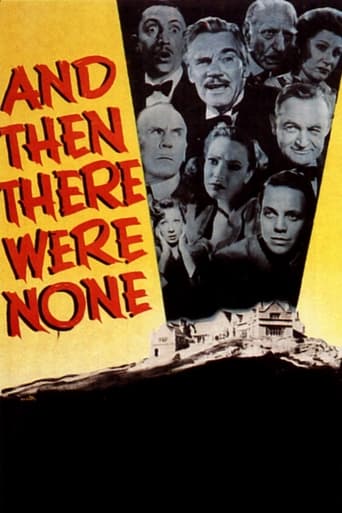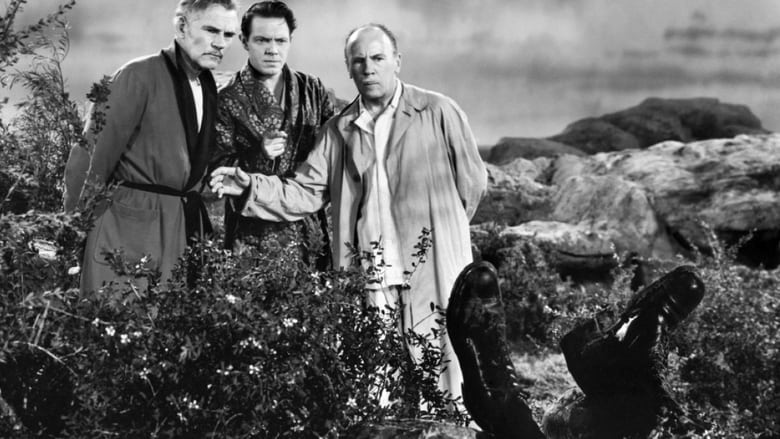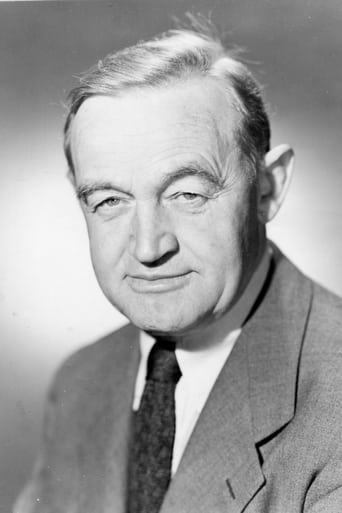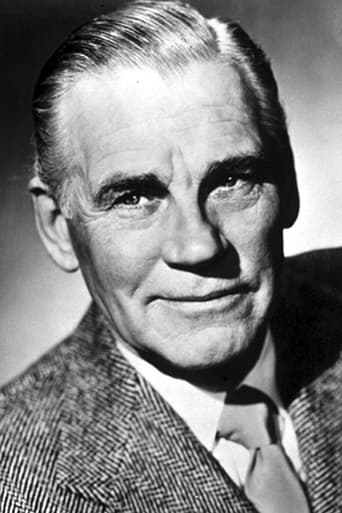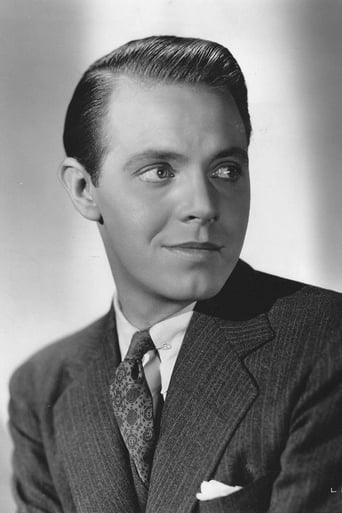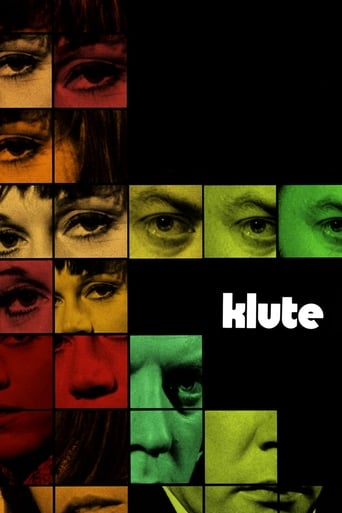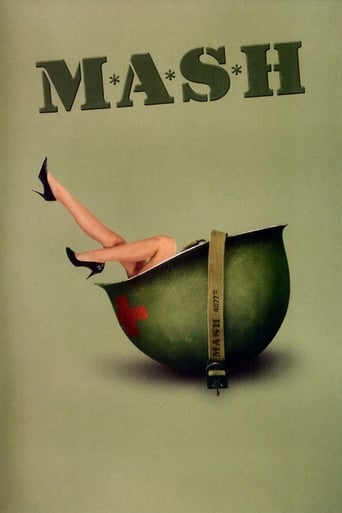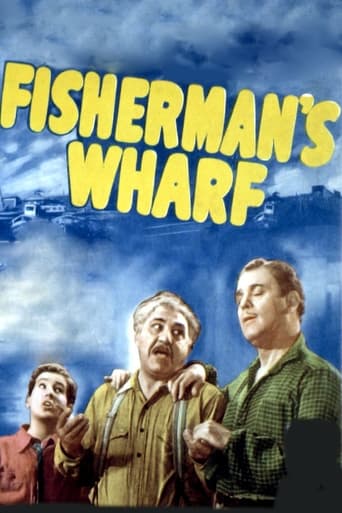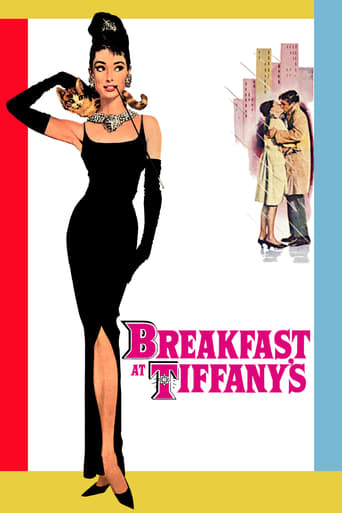And Then There Were None (1945)
Ten strangers are summoned to a remote island and while they are waiting for the mysterious host to appear, a recording levels serious accusations at each of the guests. Soon they start being murdered, one by one. As the survivors try to keep their wits, they reach a disturbing conclusion: one of them must be the killer.
Watch Trailer
Cast
Similar titles
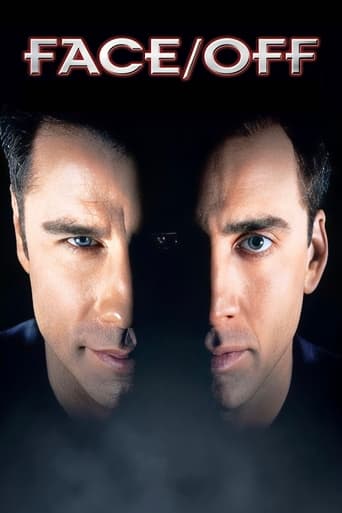
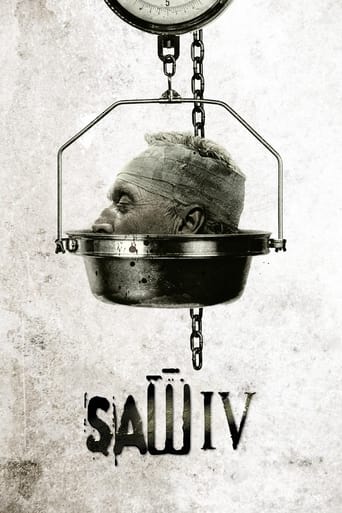
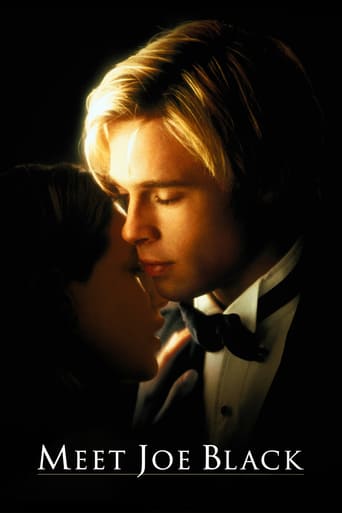
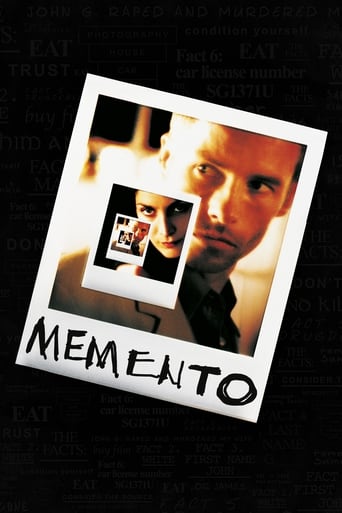

Reviews
Pretty Good
A film with more than the usual spoiler issues. Talking about it in any detail feels akin to handing you a gift-wrapped present and saying, "I hope you like it -- It's a thriller about a diabolical secret experiment."
This is one of the best movies I’ve seen in a very long time. You have to go and see this on the big screen.
Exactly the movie you think it is, but not the movie you want it to be.
Entertaining whodunit is perhaps the best of the mysteries which uses the Ten Little Indians formula of a group of characters killed one after the other by someone among them. The methods of execution and the visual ideas (the use of knitting string which leads to a dead victim laying on her bed after a hypodermic with poison sent her to the great beyond, a fallen pair of binoculars after a brick pillar is pushed on top of a victim, chopped wood laid out strewn in front of the servant quarters of an ax victim, the clever use of cherubic statuettes representing the victims (each of which is shattered or broken once someone among the group is murdered), etc.) are directed in spirited fashion by an inspired crew under René Clair's guidance. The setting is perfect (a manor on an isolated island where a series of murders could take place without the concern of interference of others beyond the group themselves) for the Agatha Christie mystery. The cast is full of colorful faces and characterizations with particular standouts, Walter Huston (celebrated director, John Huston's, father) as a doctor and the delightful Barry Fitzgerald as a judge, both of whom "were selected" by an unknown party named Mr. UN Owen (get it, unknown?) to end up on the island as guests to be selectively offed in a variety of ways. Here's the deal: ten "Indians" arrive on the island at the request of a man their friends supposedly know. There's a butler and his cook wife, already at the location, but they are unaware of who Mr. Owen is. They will soon be a part of the killer's masterplan. Each person selected is supposedly responsible for the death of someone. Whether it is their actions causing a suicide (Judith Anderson, completely calm and without distress, just knitting, not a care in the world, responsible for putting away a kid because "he was bad"; the kid would kill himself as a result), wrongly convicting someone or being a reason for someone being imprisoned (Fitzgerald and cop Roland Young), or a problem with booze (Huston, his doctoring resulted in a patient's death, "social drinker and entertainer" (and a "prince" no less) Mischa Auer, who had a DUI resulting in the vehicular homicide of a couple; Mischa's bouts with the drink are obvious, as his obnoxiousness wearies the group almost immediately); this group has a sketchy past that someone among them believes is enough to see them meet poetic justice. Louis Hayward arrives with a medicine case (one a traveling doc would carry) with a different name than what he calls himself which might be a clue as to his reasons for being on the island. The very pretty June Duprez is the innocuous and sweet secretary called to the island by Owen for a job position or so she thought. June continues to deny she was involved in any murder while most of the others confess to contributing or directly causing a death. Some do so with little regard for what happened, devoid of guilt, more worried about their own skin that recognizing *why* they are going through this.What makes the film fun for me is seeing them eventually question each other on who among them is the killer, deducing and speculating, looking over each other's shoulder, and forming alliances. Louis and June are both about the same age and share a budding romance blooming, while Fitzgerald and Huston (it seems) are in cahoots together to achieve an unveiling of the identity of the killer. A wonderful C Aubrey Smith ("The Four Feathers" and Hitchcock's "Rebecca") is the elderly, near-deaf General Sir John Mandrake, often speaking aloud about his wife, befriends June; I think out of the cast, he's the least suspect (his bouts of senility, which often has him mentioning his wife, kind of indicate this whole ordeal is speeding up his eventual demise).Clair's À Nous la Liberté, a precursor to Chaplin's Modern Times, came a decade before this, and you can see all that returning visual mastery on display in how the mystery developed itself often by using the camera as a pair of eyes (very Hitchcockian), as it follows (with the remaining survivors) the ensuing plot's unraveling. The murders are sometimes discovered by characters off screen (maid servant Queenie Richards is so overwhelmed at a record played (the one produced by Owen that details each murder committed by those present on the island) by her butler husband (Richard Hayden) that she goes to bed and never awakens, found dead the next day), and through dialogue tell the viewer how they occurred.But I think the movie is at its best when Clair carefully shows crime scenes through stylistic ways that paint a picture of what happened, imaginatively setting out the bodies to be found by the characters with tricks on what his camera does and doesn't see. The really talented directors could often take the limits placed on them by censorship and adopt a different strategy, incorporating a less is more approach. There's no in-your-face in 1945. Still, the cast expertly play along. This is all sweet music, with everything falling into place beautifully.
A small boat chugs tirelessly through choppy seas, delivering its cargo of eight souls to a very remote island. In silence they suffer till they reach their destination. Upon arriving, they introduce themselves and find that their host, a Mr. Owen, is absent. However, a married butler and cook are present to attend to their needs.This is the setting for Agatha Christie's quintessential murder mystery. Soon the guests are advised of Mr. Owen's intentions, and the games begin. Try to figure out who the murderer is before the truth is revealed. The guests, including a judge played by Barry Fitzgerald and a doctor played by Walter Huston, devise strategies to uncover the perpetrator, but he/she is a devious devil.The real star of the film is the story, Christie's ingenious invention that still thrills, though it had more impact when it was first written, before others had purloined her plot (aka "Ten Little Indians").The version I watched on TCM was somewhat murky and the musical notes of the score seemed to bleed into one another, but it was sufficient to appreciate this classic whodunit.
Ten people are brought to an isolated island estate by the Owens. They don't know each other and the Owens are not there. At dinner, there is a centerpiece with ten little Indian figurines. A record is played and each one is accused of a murder. Vera Claythorne (June Duprez) is suppose to be Mrs. Owen's new secretary. She murdered her sister's fiancé. General Sir John Mandrake (C. Aubrey Smith) ordered his wife's lover to his death. The new servants Thomas (Richard Haydn) and Ethel Rogers (Queenie Leonard) killed their invalid employer. Emily Brent (Judith Anderson) killed her nephew. A drunk Dr. Edward G. Armstrong (Walter Huston) caused the death of a patient. Prince Nikita Starloff (Mischa Auer) killed a couple in a DUI. Judge Francis J. Quinncannon (Barry Fitzgerald) is responsible for an innocent man's hanging. Philip Lombard (Louis Hayward) killed 21 East African tribesmen. William H. Blore (Roland Young)'s perjury caused an innocent man's death. Soon, they realize that nobody has ever met U.N. Owen or unknown and the boat is not coming back until Monday. The people starts dying one by one and the figurines are lost one by one. It becomes apparent that one of the group is actually the killer.Based on the famous Agatha Christie novel, this is a contrived story but that's Agatha Christie. It is fun that way. It's a parlor game and the audience is there to guess the ending. They are all serious actors giving compelling performances. It has a few sly jokes and keeps the mood from being too dark. It is snappy and the deaths keep coming.
A definite eerie, brooding piece with ten people being invited to a remote British island and then being summarily killed off one by one. Problem was that all had committed some form of transgressions in the form of murder during their respective lifetimes.You would think that the usually sinister Judith Anderson would be up to her evil ways. Instead, she sits and knits in the way of Madame DeFarge and becomes an early victim. Walter Huston proves in his role of a doctor how vulnerable he is when he is easily duped by rascal Barry Fitzgerald, the latter in top form here.A piece proving that justice may be served.
